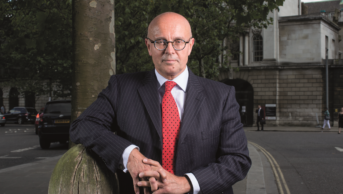
Courtesy of Nick Hunter
Some 233 community pharmacies have closed in England since the government funding cuts were introduced in October 2016, according to figures seen exclusively by The Pharmaceutical Journal.
More than half of the closures — 142 pharmacies — were branches of high street chains; 69 were independent pharmacies and a further 22 were independent multiples, the figures compiled by the Pharmaceutical Services Negotiating Committee (PSNC) reveal.
The majority — 216 closures — were in urban towns and cities, 10 had Healthy Living Pharmacy status and 160 qualified for quality payments under the national community pharmacy contract.
Although quite a few independents shut, 27 of these dispensed more than 5,000 items per month, and two dispensed more than 10,000 items per month.
On top of the closures, which occurred between October 2016 and October 2018, a further 386 pharmacies transferred their ownership during the same period. It is unknown how many of these resulted in mergers. In the same 24 months, 126 new pharmacies opened.
The data, put together by national negotiators, was based on its scrutiny of statistics held by NHS Digital, as well as data from the NHS Business Services Authority for the number of community pharmacies that were paid between October 2016 and October 2018.
Evidence from local pharmaceutical committees (LPCs) across England supports the picture of community pharmacy struggling financially.
LPCs told The Pharmaceutical Journal that they have seen unprecedented pharmacy closures. Others have only managed to keep afloat by reducing staff numbers or cutting opening hours. Some contractors have even been forced to dig into their own pockets in order to pay staff and bills.
Nick Hunter, chief officer of Doncaster, Rotherham and Nottinghamshire LPCs, said that in the past 18 months, one Doncaster pharmacy had closed and another went bankrupt in Rotherham. Two branches of LloydsPharmacy had shut down in Nottinghamshire as part of its national plan to close and sell off pharmacies, and two local independents merged, Hunter said.
Independents were being hit the hardest and as a result were reducing hours or staff, Hunter said.
“The multiples are cutting in other ways. Boots has just announced 350 head office redundancies — it can make cuts in other ways in order to build their business year on year.”
Three community pharmacies have closed in Sheffield in the past 12 months, which is unprecedented, according to Claire Thomas, LPC chief officer.
“Closures are not the full picture; many pharmacies are having to find ways to reduce costs such as reducing staffing levels, stopping non-funded services or introducing a charge for services such as home deliveries,” she said. “We are also seeing an increasing number of applications for pharmacies to reduce their opening hours.”
In Kent, three community pharmacies have closed in the past 18 months and another contractor merged two pharmacies into one, said Michael Keen, LPC chief executive officer.
However, new pharmacies have also opened because of large scale developments, especially at Ebbsfleet.
Keen said: “Closures are not the norm. A number of independents [are] also report freezing their salaries or taking cuts and not being able to pay staff pay increases or bonuses. Significantly they say they are putting investment plans on hold and that is concerning because we need confidence that government will support our profession and the community pharmacy sector to enable us to invest in the future.”
Phillip Yelling, Cornwall’s LPC chief officer, said contractors were finding it difficult to pay bills.
“Contractors are looking at staff and the numbers they need to employ, because staffing is one of the few things they can control,” he said.
In Suffolk, eight pharmacies have closed since 2016, said Tania Farrow, LPC chief officer. “They came quite quickly in the first year after the cuts were introduced,” she said. “But we are now seeing pharmacies reducing their hours and staff to support themselves.
“My biggest concern is the hidden cost of the cuts to contractors and their teams. Disillusionment and stress levels are unprecedented and the inability to invest in a rapidly changing future means that contractors are failing to see a way forward.”
Malcolm Harrison, chief executive of the Company Chemists’ Association, which represents the major high street multiples and supermarkets, said: “It is clear that changes to level of remuneration for pharmacy, coupled with retrospective clawbacks, have placed considerable strain on all pharmacy businesses, regardless of their size. Community pharmacies provide vital access for the public to the NHS and are an important part of any neighbourhood.”


